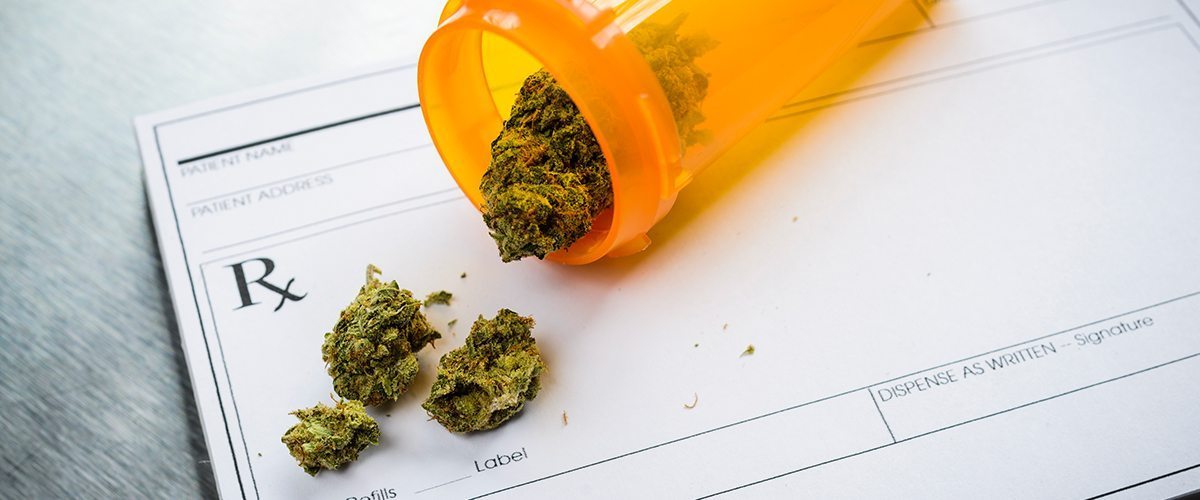[vc_row][vc_column][vc_column_text]
Regulatory changes are coming to Washington D.C.’s medical cannabis industry after the D.C. Council passed an omnibus bill to help with the market’s expansion.
The District of Columbia’s medical marijuana market will undergo a few notable revisions over the next few months, with the D.C. Council passing an omnibus bill meant to expand and improve the program. The new law is designed to revitalize a somewhat struggling market, as just 4,283 of the city’s 670,000 residents (1 percent) possess a medical marijuana card and are participating in the District’s program.
The Medical Marijuana Reciprocity Amendment Act, unanimously supported and signed by the D.C. Council on November 1, expands the authorization to recommend medical marijuana to include registered nurses, physician assistants, dentists and naturopathic physicians, and allows registered patients to purchase medicinal cannabis at any of the five dispensaries in the District rather than be limited to one.
“Some dispensaries have more products available for the patients, and the previous system required a patient to have to pay another $100 if they wanted to change dispensaries,” said Nikolas R. Schiller, co-founder of cannabis legalization organization DCMJ. “Very few other medical cannabis programs in the United States require patients to go to only one.
The bill also adds a requirement that an independent laboratory test all medical marijuana products for safety and quality prior to sale, removes the 1,000-plant limit for licensed cultivators, and allows visiting medical marijuana patients to purchase cannabis at D.C. dispensaries.
Permitting patients enrolled in other jurisdictions to purchase medical marijuana in the District is expected to cause a significant bump in patients, and subsequently, revenue.
“Non-residents are not permitted to purchase medical marijuana under current law. This results in a complete barrier to access for non-residents that doesn’t exist for other medication,” stated a committee report from September.
“We probably get 30-40 calls a day from people who are coming to DC and have medical cards from other states,” Jen Brunenkant, owner of a D.C. dispensary, told Marijuana Business Daily. “That’s a significant number, so it’ll probably have a significant effect on the number of people visiting the dispensary. But I don’t believe that it will only take them three months to implement a system and get the regulations done.”[/vc_column_text][/vc_column][/vc_row][vc_row][vc_column][vc_single_image image=”17313″ img_size=”1200×250″ onclick=”custom_link” link=”https://www.medicalmarijuanainc.com/education/”][/vc_column][/vc_row][vc_row][vc_column][vc_column_text]The Medical Marijuana Reciprocity Amendment Act will now go to the desk of Mayor Muriel Bowser, who is expected to sign the bill. It will then sit in a 30-day congressional waiting period before taking effect, although several provisions will only be allowed to go into effect once the program’s tracking system is set up.
The tracking system, still to be created by the Department of Health, will keep real-time tabs on transactions made my dispensaries, growers and laboratories.
Prior to the D.C. Council’s final vote on the Medical Marijuana Reciprocity Amendment Act, it was amended to include a provision proposed by Councilmember David Grosso. Recognizing that African Americans are disproportionately impacted by drug convictions, the new bill removes the previous bar on individuals with misdemeanor drug convictions or felony convictions for marijuana possession with intent to distribute. The goal is to make the District’s industry more inclusive.
“It is a powerful statement of where we are moving in our city,” said Kaitlyn Boecker, a policy coordinator at the Drug Policy Alliance. “Those who have been harmed the most from the drug war should also benefit. It moves us in the direction of reparative justice.”
The D.C. Council is hoping the legislation will help in the expansion of its medical marijuana market. Last September, Mayor Bowser issued a directive doubling the amount of cannabis a patient can purchase within a 30-day period to 4 ounces.
Learn more about Washington D.C.’s current cannabis laws on our education page.[/vc_column_text][/vc_column][/vc_row]






